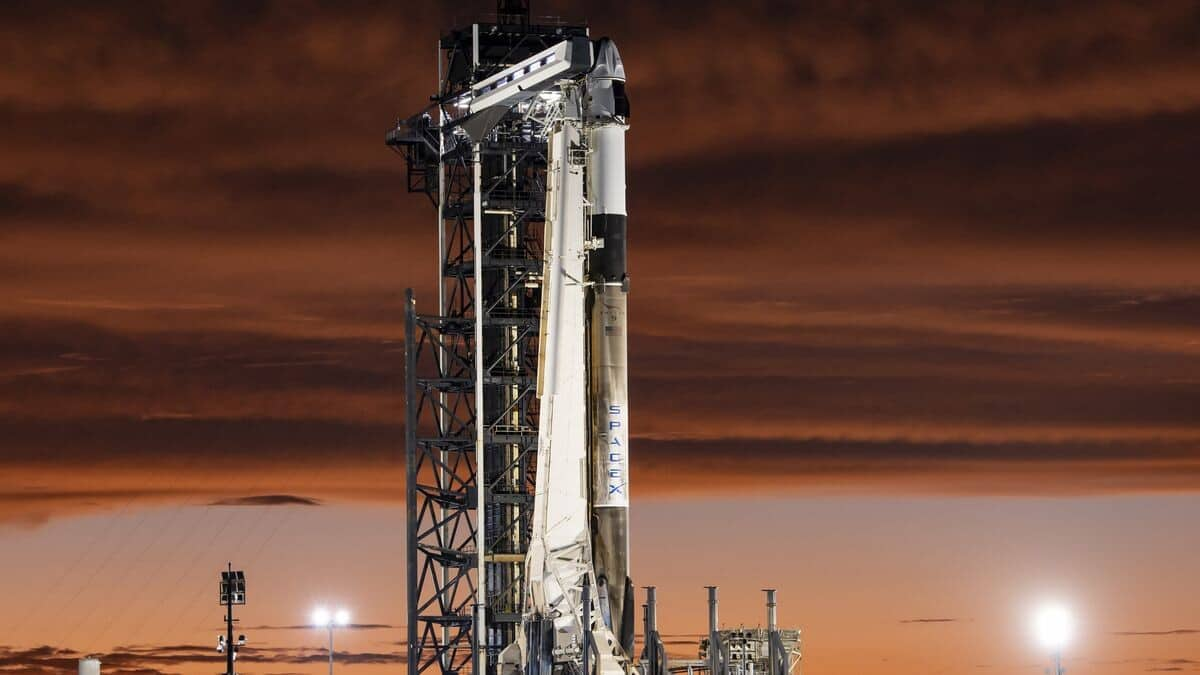
SpaceX's Polaris Dawn mission delayed due to unfavorable weather
What's the story
SpaceX's historic Polaris Dawn mission, aiming to send the first private citizens on a spacewalk, has been delayed once again, this time due to unfavorable weather conditions off the Florida coast. The mission was initially planned for a launch on August 27, but was postponed due to a helium leak. The helium leak issue was resolved, but now unfavorable weather conditions in the designated splashdown zone have forced another delay.
Official statement
SpaceX is monitoring weather conditions for favorable launch, return scenarios
SpaceX officially announced the delay in a post on X, stating, "Due to unfavorable weather forecasted in Dragon's splashdown areas off the coast of Florida, we are now standing down from tonight and tomorrow's Falcon 9 launch opportunities of Polaris Dawn." The company confirmed that its teams "will continue to monitor weather for favorable launch and return conditions."
Launch update
New launch date and mission duration
SpaceX has not yet disclosed a new target launch date for Polaris Dawn, which will spend approximately five days orbiting Earth. However, the company's post has ruled out both Wednesday and Thursday as potential launch days. Therefore, Friday (August 30) is now the earliest possible liftoff day.
Mission details
Polaris Dawn mission: A look at the crew and objectives
The Polaris Dawn mission will send four people into Earth orbit in a SpaceX Crew Dragon capsule, atop one of the company's Falcon 9 rockets. The crew includes commander Jared Isaacman, pilot Scott "Kidd" Poteet, and mission specialists Sarah Gillis and Anna Menon. This mission is set to make history as Isaacman and Gillis will conduct the first-ever private spacewalk, aiming to reach an altitude of about 1,400km—higher than any crewed mission since the Apollo era.
Crew experience
Polaris Dawn: A first-time spaceflight for three crew members
Polaris Dawn will mark the first spaceflight for Poteet, Gillis, and Menon. Isaacman, who previously orbited in September 2021 on SpaceX's pioneering Inspiration4 mission, is an experienced astronaut. He funded and commanded that effort as well and plans to do the same for two additional missions after Polaris Dawn.